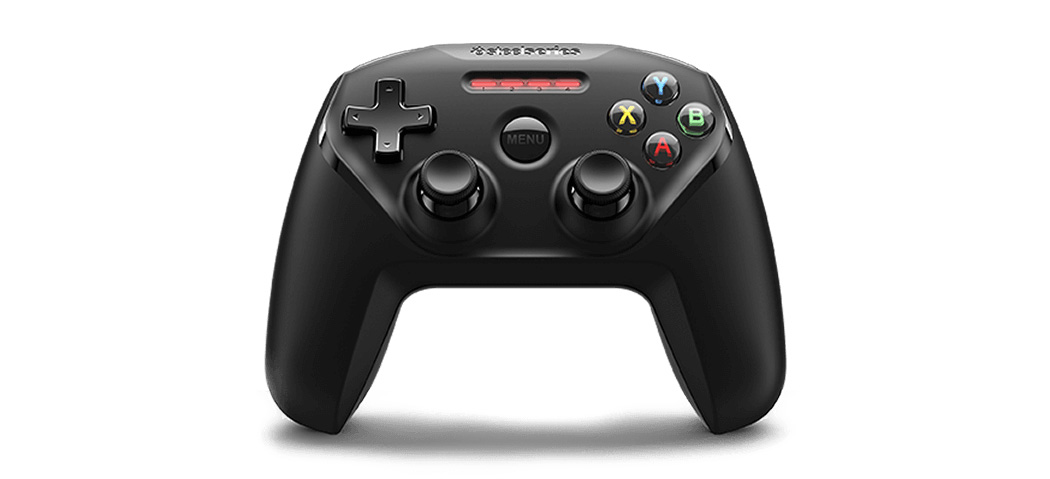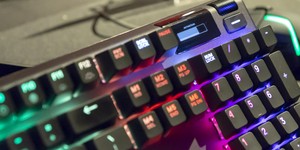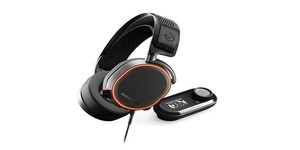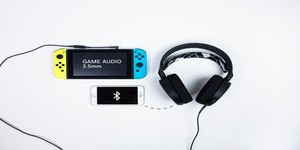
bit-tech recently had the pleasure of interviewing Jacob Wolff-Petersen, the founder of SteelSeries and currently a member of its board of directors, to discuss the firm’s history, its ups and downs, and the new high-end Arctis Pro headsets. Also: Brexit and booze.
SteelSeries was founded in 2001 as Icemat, a reference to the eponymous glass mousepad – then a world first – that was much loved by PC gamers back in the days of dust-accumulating roller-ball mice and the first Counter-Strike tournaments. ‘Nobody was thinking about these things except for pro gamers’, says Jacob. ‘I was very quick out of the gate to engage pro gamers to help me develop the new products, especially in the beginning when you needed a lot of info. Over the years it became much more about ourselves, including ex-pro gamers in the company, developing products.’
A deal with Microsoft in 2003 saw the Icemat bundled with the Intellimouse, which broadened distribution networks. ‘I never saw it like a traditional Danish business where you grow in Denmark, then Nordics, and maybe you go to Germany and […] the UK,' says Jacob, who always envisioned worldwide distribution, which suited the pro-gaming customer base: ‘There were gamers across the world with teams having one member in Germany, another one in Italy, and so forth.’

From the Icemat foundations, SteelSeries was born in 2007, co-founded with Bruce Hawver who’d had success rapidly growing Motorola’s accessory division and who became CEO. ‘He helped me a lot to organise the company. I got middle management and everything properly in place, and I could really concentrate on the products, the story, and the direction we wanted to go.’ Bruce’s considerable experience in backend things like logistics and warehousing was key, and if he could, Jacob would tell his younger self to have sought out such experience earlier on, citing a lack of properly implemented processes as leading to ‘almost going in the really wrong direction’.
Another piece of advice for past Jacob? ‘Shout a bit more – we didn’t even wanna shout that we were good ourselves; we had to have other people say it, you know that tendency of being underplayed. I dunno whether it’s a Nordic thing or not, but obviously seeing the competition really being better at shouting about themselves, I probably wish we went a little into that game a bit earlier’.
In 2012, Jacob sold a portion of SteelSeries to equity partners, and Ehtisham Rabbani was brought in as CEO while Jacob remained on the board. Rabbani, who had previously worked at Logitech, was a strong hire in Wolff-Peterson’s eyes: ‘He had really the same big view that gaming is for everybody, and it’s all about hardcore gaming and really growing from that. We got back on a track to where SteelSeries belongs […], back to being that gaming company that I set out to be.’
Even so, gaming these days is a term with seemingly endless definitions, and one that’s used often as a marketing term for products with only tenuous links to playing games. Couldn’t SteelSeries remain a ‘gaming company’ while also branching out into things like cases or gaming chairs given that the vast majority of companies that sell peripherals have their fingers in many other pies too? Jacob acknowledges the possibility was there, but he references the old ‘Winning Is Everything’ slogan as really being a core value of the company, with the end result being an avoidance of products that don’t have the potential to make you a better gamer or at the very least improve your real-time interactive gaming experience.
Jacob is no stranger to branching out and exploring alternative product lines, either, modestly laughing at his ‘very bad idea’ to produce the ill-fated Icemat Audio MP3 player in the early noughties. ‘It’s really about focus. To stay the course is just as difficult as to branch out and do other things’, he says, citing this as something that he sees as setting SteelSeries apart from the crowd while also admitting that the company is sitting on a lot of knowledge that could potentially allow it to explore the monitor market in a unique way, for example.

So how does a company with such a firm commitment to gaming peripherals broaden its horizons? One route taken now referred to as a ‘phase’ was publisher-branded products, but these proved difficult to handle retail-wise and are less of a focus now. Instead, the critical thing for Jacob is acknowledging that gaming is now very much a cross-platform activity for most gamers. While insisting that SteelSeries is ‘really PC first’, Jacob recounts the launch of the Nimbus controller for Apple devices. To this day, it also offers Linux and Apple drivers for its peripherals. The growth of gaming and available platforms like consoles and mobile has repeatedly been used to spell doom for PC gaming, suggests Jacob, ‘but the reality all of us know by now is it’s really just making the market bigger’.

MSI MPG Velox 100R Chassis Review
October 14 2021 | 15:04








Want to comment? Please log in.